Praise for
Crossing the Tracks

Provocative, entertaining, and eye-opening. I wish I'd read this book when I began a cross-cultural relationship with a cowboy. It would have saved us much grief.
Sara Davidson, author of Cowboy and Loose Change
As a psychotherapist, I deal with relationships for a living. Dr. Payne's work helped me understand the hidden rules many of my patients struggle with on a daily basis. It also prompted many funny conversations between my husband and me, such as about the time he took me to a Laundromat during our courtship. Having grown up in an uppermiddle-class family, I had never been to one and was fascinated by it. He had grown up in a blue-collar family and had never known another way of washing his clothes!
Dr. Jill Murray, author of But I Love Him,
Destructive Relationships, and But He Never Hit Me
Crossing the Tracks for Love is groundbreaking. In it, Ruby Payne reveals essential keys for overcoming the hidden obstacles that cause conflict between people who truly love one another and are meant to be together. If a couple starts their relationship aware of this remarkable information, they can avoid years of unnecessary misunderstanding.
Donna LeBlanc, M.Ed., psychotherapist and
broadcaster, author of The Passion Principle
Other books by Ruby K. Payne, Ph.D.
A Framework for Understanding Poverty
Understanding Learning: The How, the Why, the What
Hidden Rules of Class at Work
(with Don Krabill)
What Every Church Member Should Know About Poverty
(with Rev. Bill Ehlig)
Bridges Out of Poverty: Strategies for Professionals and Communities
(with Philip DeVol and Terie Dreussi Smith)
Removing the Mask: Giftedness in Poverty
(with Paul Slocumb, Ed.D.)
Living on a Tightrope: A Survival Handbook for Principals
(with Bill Sommers, Ed.D.)
Crossing the Tracks

what to do when you and your partner
grew up in different worlds
Ruby K. Payne, Ph.D.

Crossing the Tracks for Love: What to Do When You and Your Partner Grew Up in Different Worlds by Ruby K. Payne 2005 by aha! Process, Inc.
All rights reserved. No part of this book may be reproduced in any manner whatsoever without written permission from the publisher, except in the case of brief quotations embedded in critical articles and reviews. For information, address: aha! Process, Inc., P.O. Box 727, Highlands, TX 77562-0727; fax (281) 421-9852. Website: www.ahaprocess.com
Copyediting by Dan Shenk
Book design by Sara Patton
Printed in the United States of America
ISBN 978-1-929229-33-8
ePub ISBN 978-1-934583-79-1
Library of Congress Control Number: 2004111397
10 9 8 7 6 5 4 3 2
Acknowledgments
I would especially like to thank Stephanie Gunning for her writing. She completed the manuscript and made it so readable. I would also like to thank Peg Conrad and Dan Shenk for all their help and advice. Without these three individuals, this book would never have happened.
Many thanks to Frank, my former husband, and his mother and family for helping me understand the hidden rules of poverty and those of my own family of origin. Thanks also to our son, Tom, for being such an important part of the story.
In addition, I would like to thank Arielle Ford, Ruth Weirich, Sara Patton, Kathi and Hobie Dunn at Dunn+Associates Design, Graham Van Dixhorn at Write to Your Market, Meg McAllister and Darcie Rowan of McAllister Communications, as well as the consultants and staff at aha! Process, Inc.
My deep appreciation extends to the individuals who agreed to be interviewed, and then so openly shared details from their childhoods, adult lives, and marriages. Your gift has made the book richer and more informative. Thank you.
Introduction
 'll never forget meeting the mother of my husband-to-be, Frank. She's a woman whom I dearly loved after we became better acquainted. At the time I was a 20-year-old student, waitressing my way through college by scrimping and saving my pennies. She looked me up and down and said, Daddy's little rich girl, huh? Those were the first words out of her mouth.
'll never forget meeting the mother of my husband-to-be, Frank. She's a woman whom I dearly loved after we became better acquainted. At the time I was a 20-year-old student, waitressing my way through college by scrimping and saving my pennies. She looked me up and down and said, Daddy's little rich girl, huh? Those were the first words out of her mouth.
A heavyset woman with a formidable presence, Mommy was seated in a rocking chair on the front porch from which she could overlook the neighborhood. True enough, I was driving a Buick that belonged to my dad. But it was a big boat of a car, and nobody would have mistaken it for new. Her comment rendered me speechless.
When I didn't respond, she continued, Where did you get those shoes?
Well, I bought them, I said. They're Italian. I was proud of their stylishness.
Those slacks! Where did you get those?
I made them, I replied. Back then I sewed all my clothes by hand.
Mommy only snorted at that: Hmph.
After the tone of this introduction, I wondered, Jeez Louise, what did I get myself into here? Because I didn't know then that people in poverty often say something right off the bat to shock you and establish a power base, I felt as though she believed that I wasn't good enough to date her son. A moment later, as Frank and I were walking into the house, he said, I would apologize, but it always looks this way. It was a mess inside. Pure chaos. It turns out Frank's mother was following a hidden rule of poverty: Before you can make a negative comment about me, I'm going to make a negative comment about you. She knew that if I were on the defensive, she would have the advantage.
Soon Mommy and I became friendly. I wasn't making much money on my waitress's salary, so I was living on one meal a day. When she found out, she kindly had Frank bring me over to her place for food. She also started taking me to rummage sales around townor, rather, I drove her to the sales in my car. What are you doing on Saturday, Ruby? Pick me up at 6 a.m. She always knew where the best garage sales and rummage sales around town would be. Church sales are the best ones, and you have to arrive early. We'd be standing by the entrance for half an hour, even if it was colder than Hades outside. We had to be first in line to get the best deals. Mommy was an ally of my subsequent marriage to her son, as well as serving as one of my earliest guides through the territory of poverty, about which I initially had no clue.
Frank and I are now divorced. But we were married for more than 30 years. He grew up in extreme poverty, and I grew up middle class. We met during college. For our marriage to survive as long as it did, we had to learn to understand and negotiate the differences arising from our economic backgrounds.
Frank's father died when he was six years old, and his family had to move. His widowed mother and her five children went from a middle-class neighborhoodand lifestyleto a neighborhood full of generational poverty. Generational poverty is the phrase used to describe poverty in a family that's lasted more than two generations. Situational poverty, as in Frank's family, comes from a temporary reduction in resources due to a death, a divorce, or an illness. Many middle-class people experience this type of poverty during college or before they've established a career. Frank's family had to learn the underlying rules of their new neighborhood in order to blend in and survive.


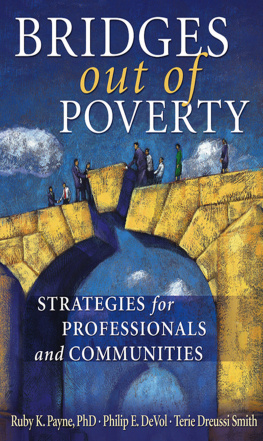
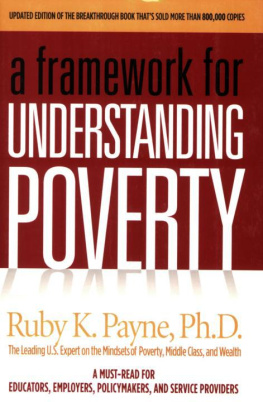
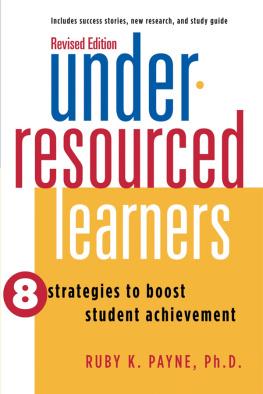
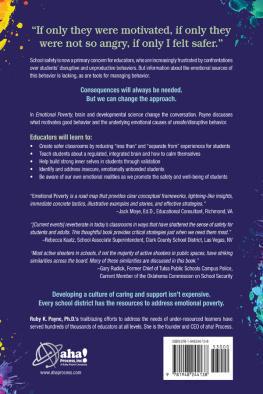
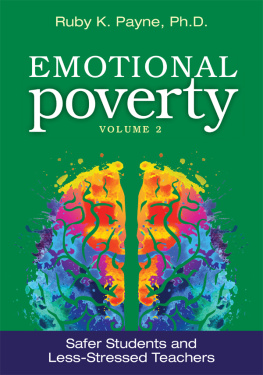

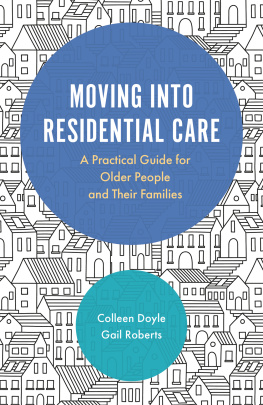
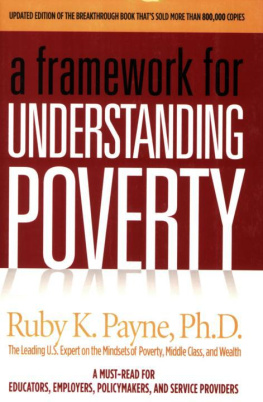
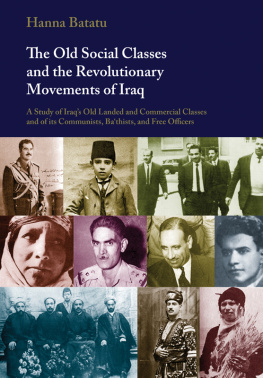
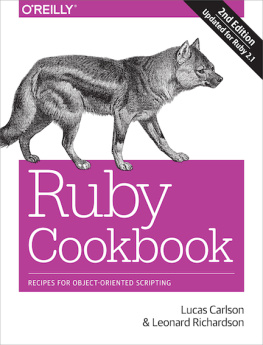

![Russ Olsen [Russ Olsen] - Eloquent Ruby](/uploads/posts/book/120775/thumbs/russ-olsen-russ-olsen-eloquent-ruby.jpg)
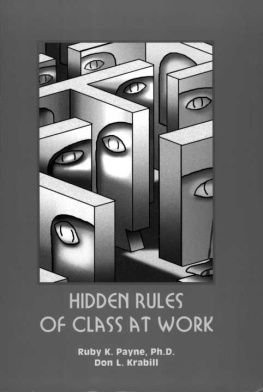




 'll never forget meeting the mother of my husband-to-be, Frank. She's a woman whom I dearly loved after we became better acquainted. At the time I was a 20-year-old student, waitressing my way through college by scrimping and saving my pennies. She looked me up and down and said, Daddy's little rich girl, huh? Those were the first words out of her mouth.
'll never forget meeting the mother of my husband-to-be, Frank. She's a woman whom I dearly loved after we became better acquainted. At the time I was a 20-year-old student, waitressing my way through college by scrimping and saving my pennies. She looked me up and down and said, Daddy's little rich girl, huh? Those were the first words out of her mouth.